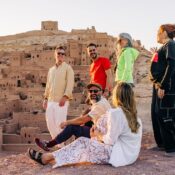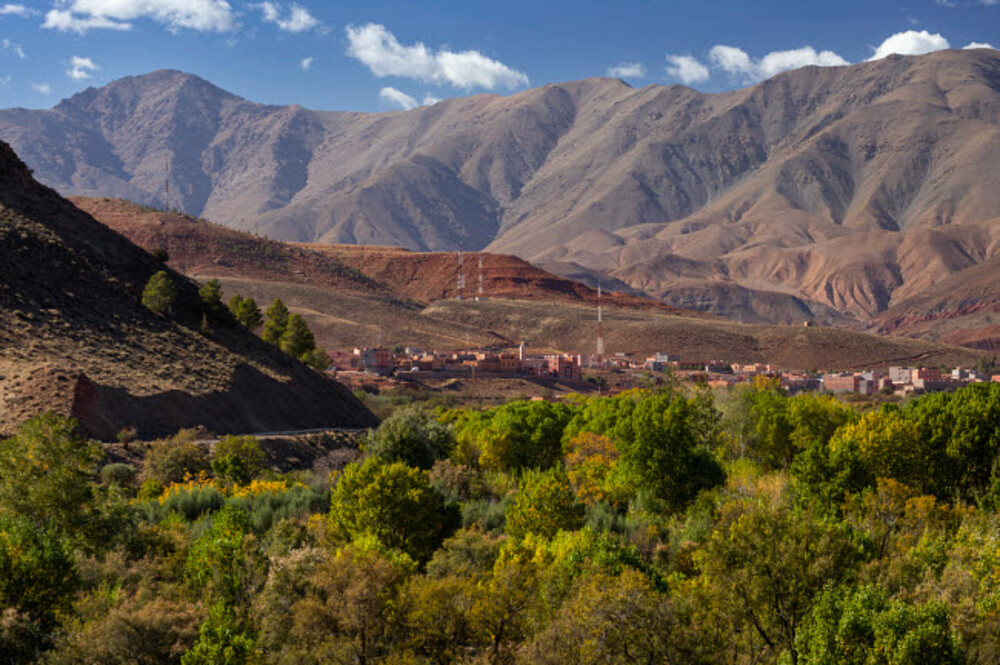
Springtime in the Atlas Mountains: hiking and adventure tips
Introduction
Springtime in the Atlas Mountains offers a captivating blend of natural beauty, adventure, and cultural immersion. Located in North Africa, this majestic mountain range boasts breathtaking landscapes, diverse flora and fauna, and a plethora of outdoor activities for adventure enthusiasts. Whether you’re an avid hiker, nature lover, or cultural explorer, the Atlas Mountains have something to offer for everyone.
Exploring the beauty of the Atlas mountains
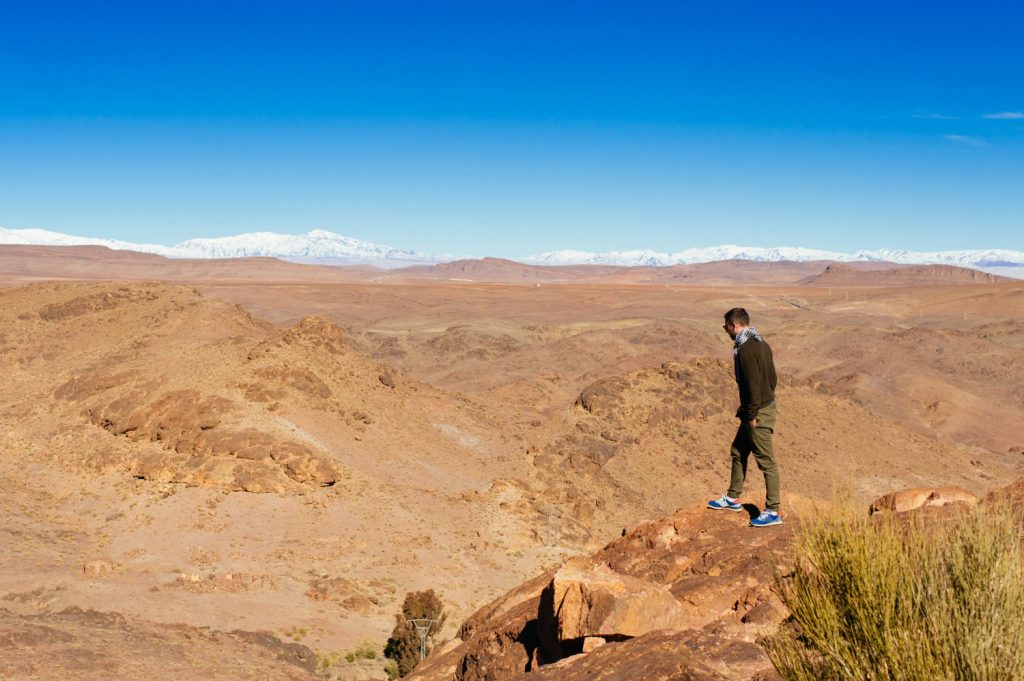
Discovering the scenic landscapes
Nestled in North Africa, the Atlas Mountains boast dramatic landscapes characterized by jagged terrain, verdant valleys, and majestic peaks adorned with snow. This scenic expanse offers a haven for outdoor enthusiasts, showcasing panoramic views and tranquil mountain lakes that captivate the senses. Whether exploring the rugged trails on foot or marveling at the breathtaking vistas from afar, every corner of this region presents a visual spectacle. The interplay of light and shadow across the undulating landscapes adds to the allure, inviting travelers to immerse themselves in the natural beauty of the Atlas Mountains and embark on unforgettable adventures amidst its stunning backdrop.
Unique flora and fauna
Exploring the Atlas Mountains unveils a captivating tapestry of biodiversity. Amidst its rugged terrain lies a treasure trove of flora and fauna waiting to be discovered. The landscape boasts a diverse range of plant and animal species, showcasing the unique ecosystem of the region. Towering proudly amidst the rocky slopes is the majestic Atlas cedar, a symbol of resilience and endurance. Among the indigenous wildlife, the playful Barbary macaques swing through the branches, while the elusive Barbary sheep traverse the mountainous terrain with grace. Each encounter with these endemic species offers a glimpse into the intricate web of life thriving in this breathtaking natural sanctuary.
Hiking trails in the Atlas mountains
Popular routes and destinations
Nestled within the Atlas Mountains lies a sprawling network of hiking trails, providing a diverse array of experiences suitable for all skill levels. Whether one seeks a tranquil amble through picturesque valleys or craves the adrenaline of conquering formidable summits, the Atlas Mountains deliver. Toubkal National Park beckons adventurers with its majestic peaks, while the serene charm of the Ourika Valley offers a more contemplative journey. For those drawn to rugged terrain, the Dades Gorges promise exhilarating challenges and breathtaking vistas. With each trail offering its own unique blend of beauty and adventure, the Atlas Mountains stand as a haven for hikers seeking to immerse themselves in nature’s grandeur.
Challenges and precautions
While hiking in the Atlas Mountains can be a rewarding experience, it’s essential to be prepared for the challenges it presents. Variable weather conditions, rugged terrain, and altitude sickness are common concerns. It’s advisable to acclimatize gradually, stay hydrated, and carry essential gear such as a map, compass, and first aid kit.
Adventure activities
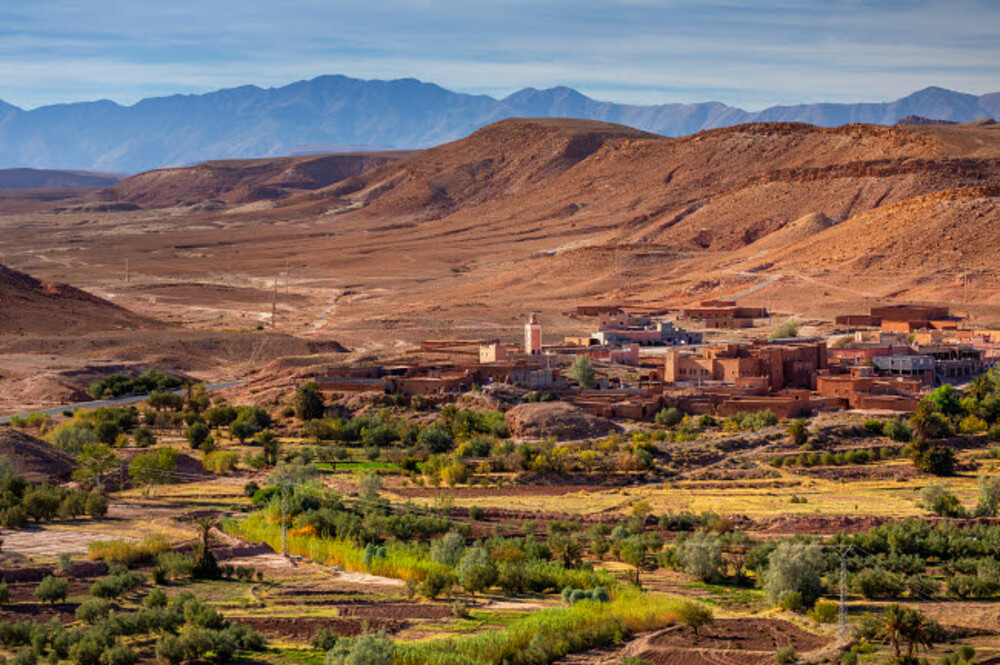
Rock climbing and mountaineering
For thrill-seekers craving a vertical thrill, the Atlas Mountains provide prime terrain for rock climbing and mountaineering. Its diverse landscape boasts an array of crags, cliffs, and peaks, catering to climbers of varying skill levels. Whether you’re a seasoned veteran or a novice looking to push boundaries, there are routes aplenty to challenge your abilities. The rugged beauty of the Atlas Mountains serves as a breathtaking backdrop to your adrenaline-fueled adventures. With each ascent, climbers not only conquer physical obstacles but also immerse themselves in the raw majesty of nature, making every climb a memorable and exhilarating experience.
Camping under the stars
Experience the untamed beauty of the Atlas Mountains by immersing yourself in the wilderness through camping under the mesmerizing starlit skies. Whether you opt for the simplicity of pitching a tent next to a babbling mountain stream or the cultural immersion of staying in a traditional Berber camp, each night spent outdoors offers a distinctive and unforgettable perspective of the region’s natural allure. Embrace the tranquility of the night as you gaze up at the twinkling stars, feeling a profound connection to nature and the ancient landscapes that surround you. This adventure promises an authentic and enriching experience amidst the rugged beauty of the Atlas Mountains.
Best time to visit
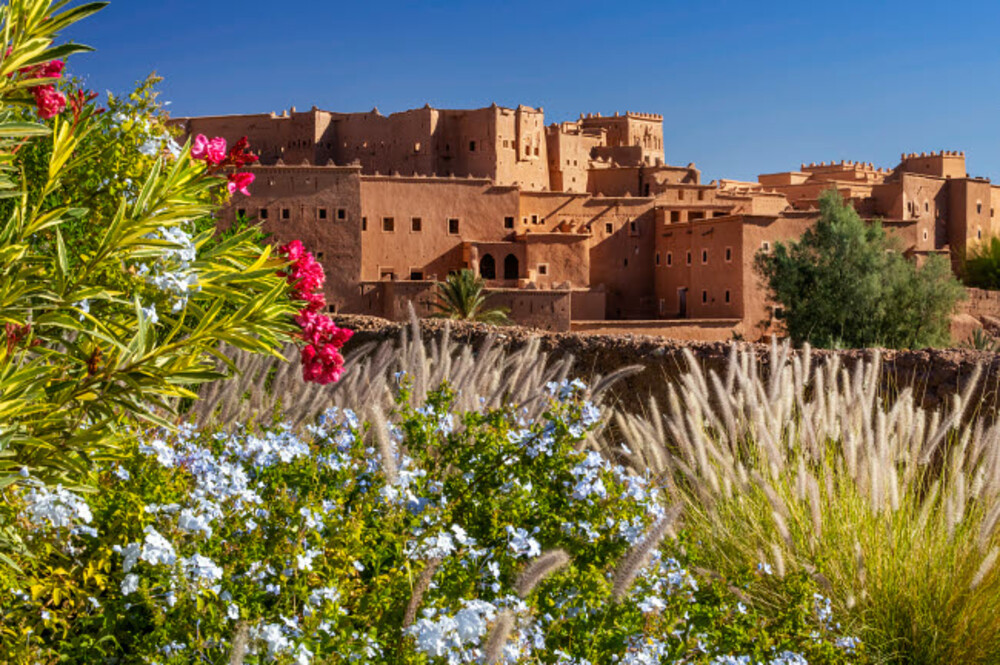
Weather conditions and seasons
Spring, spanning from March to May, emerges as the prime window for exploring the Atlas Mountains. Mild weather characterizes this season, accompanied by a vibrant burst of wildflowers that breathe life into the landscapes. As summer unfolds from June to August, lower elevations experience sweltering heat, rendering it less favorable for outdoor activities. Conversely, winter, spanning from December to February, blankets higher altitudes with snow, creating a haven for winter sports aficionados. This diversity in climate across seasons offers visitors a spectrum of experiences, from the blossoming colors of spring to the snowy escapades of winter, making the Atlas Mountains a year-round destination.
Packing essentials for springtime hiking
Clothing and footwear
When preparing for a springtime hike in the Atlas Mountains, dressing in layers is crucial due to unpredictable temperature changes. Begin with moisture-wicking clothing as a base layer to keep sweat away from the skin, followed by insulating layers like fleeces or lightweight jackets to trap heat when needed. Sturdy hiking boots with good ankle support are essential for navigating rocky terrain, while a waterproof jacket is vital to shield against sudden showers or snowmelt. Additionally, consider packing a hat and gloves for added warmth, along with sunscreen and sunglasses to protect against intense sun exposure at higher elevations. Proper preparation ensures a comfortable and enjoyable hiking experience amidst the Atlas’s breathtaking landscapes.
Safety gear and first Aid kit
In addition to clothing and footwear, don’t forget to pack essential safety gear such as a headlamp, whistle, and emergency blanket. A well-stocked first aid kit containing bandages, antiseptic wipes, and pain relievers can also come in handy in case of minor injuries or emergencies.
Tips for a memorable hiking experience
Stay hydrated and energized
Adequate hydration and nutrition are essential for sustaining energy levels during extended hikes. It’s vital to bring along an abundant provision of water and snacks like trail mix, energy bars, and fruits to ensure continual hydration and fuel throughout your journey. Hydration aids in regulating body temperature and preventing fatigue, while nutrient-rich snacks provide sustained energy. Failing to maintain proper hydration and nutrition can lead to exhaustion and decreased performance, compromising the enjoyment and safety of your hike. Therefore, prioritize these aspects to optimize your hiking experience.
Respecting local culture and environment
Exploring the Atlas Mountains mandates a deep reverence for local customs, especially those of the Berber community. Show respect by refraining from littering, adhering to marked trails, and seeking consent before photographing or engaging with residents. This ensures preservation of their culture and environment while fostering positive interactions. By honoring these principles, visitors contribute to sustainable tourism and mutual understanding between diverse cultures in this breathtaking region.
Guided tours and local guides
Benefits of hiring a guide
For those unfamiliar with the terrain or seeking insider knowledge about the region, hiring a local guide can enhance the hiking experience. Experienced guides can provide valuable insights into the area’s history, ecology, and culture while ensuring your safety and enjoyment.
Supporting local communities
By opting for guided tours or hiring local guides, you’re not only enriching your travel experience but also supporting the livelihoods of local communities. Many guides are members of Berber villages and contribute to sustainable tourism initiatives that benefit the region’s residents.
Accommodation options
Mountain lodges and guesthouses
Whether you prefer rustic charm or modern comfort, the Atlas Mountains offer a range of accommodation options to suit every budget and preference. From cozy mountain lodges to traditional guesthouses known as “kasbahs,” you’ll find plenty of places to rest and rejuvenate after a day of hiking.
Camping sites and facilities
For those craving a deeper communion with nature, camping amidst the Atlas Mountains beckons. Numerous campsites dot the landscape, providing essential amenities like restrooms, showers, and cooking spaces, ensuring a blend of rugged wilderness and creature comforts. Embrace the untamed beauty of the outdoors while maintaining a semblance of modern convenience, allowing for an immersive experience amidst the breathtaking scenery of the Atlas Mountains.
Exploring nearby attractions
Waterfalls and berber villages
In addition to hiking, the Atlas Mountains are dotted with attractions worth exploring, such as cascading waterfalls, picturesque Berber villages, and ancient kasbahs. Take a break from hiking to visit attractions like Ouzoud Falls, Ait Ben Haddou, and the Todra Gorges for a glimpse into Morocco’s rich cultural heritage.
Historical sites and cultural experiences
Immerse yourself in the history and culture of the Atlas Mountains by visiting ancient ruins, historic mosques, and bustling markets. Engage with locals, sample traditional cuisine, and participate in cultural activities such as pottery making, carpet weaving, and traditional music performances.
Safety measures and emergency contacts
Emergency services and helplines
While exploring the Atlas Mountains, it’s essential to be aware of emergency services and helplines in case of unforeseen circumstances. Save important contact numbers for local authorities, mountain rescue teams, and medical facilities before embarking on your adventure.
Navigating in remote areas
In remote areas of the Atlas Mountains, GPS signal may be unreliable, making it challenging to navigate. Carry a detailed map, compass, and GPS device as backup navigation tools, and familiarize yourself with landmarks and trail markers to avoid getting lost.
Conclusion
Springtime in the Atlas Mountains offers a perfect blend of natural beauty, adventure, and cultural immersion for outdoor enthusiasts. Whether you’re hiking through scenic valleys, camping under the stars, or exploring ancient Berber villages, this enchanting region never fails to captivate visitors with its diverse landscapes and rich heritage.
FAQs
- Is it safe to hike in the Atlas Mountains during springtime?
- While hiking in the Atlas Mountains is generally safe, it’s essential to be prepared for variable weather conditions and rugged terrain. Stay informed about local weather forecasts, pack essential gear, and hike with caution, especially in remote areas.
- What is the altitude of the Atlas Mountains?
- The Atlas Mountains span across Morocco, Algeria, and Tunisia, with varying altitudes ranging from 2,000 to over 4,000 meters (6,562 to 13,123 feet) above sea level.
- Are there guided tours available for hiking in the Atlas Mountains?
- Yes, several tour operators offer guided hiking tours in the Atlas Mountains, providing valuable insights into the region’s culture, history, and ecology. Hiring a local guide is also recommended for a more enriching experience.
- What should I pack for a springtime hike in the Atlas Mountains?
- Essential items to pack for a springtime hike include layered clothing, sturdy hiking boots, a waterproof jacket, a first aid kit, ample water, snacks, a map, compass, and emergency gear such as a headlamp and whistle.
- What are some cultural experiences to enjoy in the Atlas Mountains?
- In addition to outdoor adventures, visitors can immerse themselves in the rich culture of the Atlas Mountains by visiting Berber villages, exploring ancient kasbahs, and participating in traditional activities such as carpet weaving and pottery making.
All Categories
- Actividades en Marruecos
- Adventure
- Aventura
- blog
- blog
- Camping salvaje
- City Tours
- country tours
- Desert tours
- Estilo de vida
- Excursiones de un día a Marrakech
- Life Style
- Marrakech Day Trips
- Morocco activities
- Morocoo
- Rutas por el desierto
- Sin categorizar
- viajes por el país
- Visitas por la ciudad
- Wild Camping

